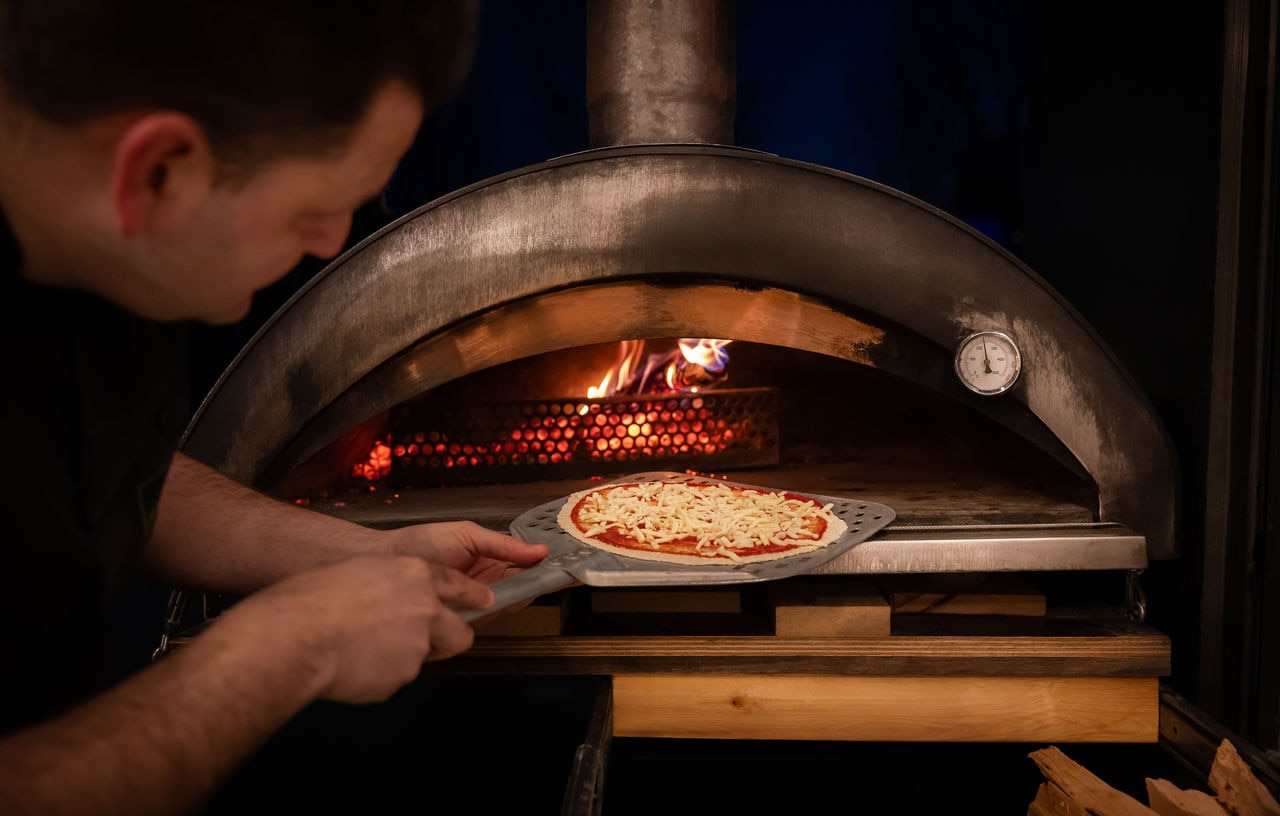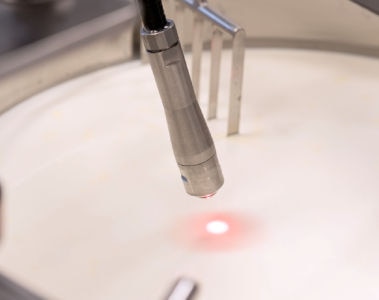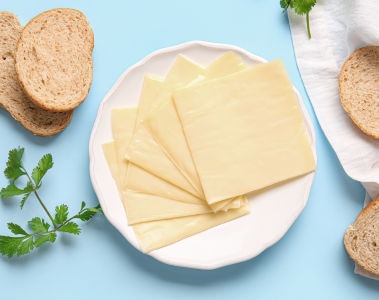
News
maart 25, 2024
De rol van culturen en stollingsmiddelen op de smaak en textuur van kaas
Om kazen te maken met precies de juiste smaak en textuur om zeer specifieke markten aan te spreken, is het van vitaal belang dat kaasmakers de juiste culturen, hulpstoffen en stollingsmiddelen selecteren.
To produce cheeses with just the right flavor and texture to appeal to very specific markets, it’s vital that cheesemakers select the right cultures, adjuncts and coagulants.
Choosing the right coagulant for the right texture
For pasta filata, Cheddar, and continental cheeses such as Gouda and Maasdam, texture, sliceability and shredability are key characteristics, as they can have important consequences on productivity and profitability. These textural traits are heavily influenced by proteolytic activity and a homogenous moisture distribution in the cheese.
Adding a coagulant with a low proteolytic activity – such as a coagulant enzyme that is highly specific towards k-casein and α-casein – to the production process, leads to a cheese with improved texture and moisture distribution, as well as better sliceability. This can result in 15% less waste during slicing. Improved sliceability also allows cheesemakers to increase the water content of a cheese by up to 2%, further increasing the quality of the final product. The economic gain achieved by improving the yield over the entire production run will impact the cost-effectiveness of the cheese production plant significantly.
Flavor also depends on choice of coagulant
Coagulant enzymes also play a key role in the flavor development of cheese. Firstly, they support cheese ripening by cutting the α-caseins to increase accessibility of the enzymes of the lactic acid bacteria; a process that aids the development of flavor. Secondly, specificity in cutting casein also helps to improve taste. This is because the right coagulant prevents the hydrolysis of β-caseins during ripening, avoiding the development of a bitter off-flavor taste.
The role of a culture in flavor development
The type and dosage of the culture used during the cheese development process are important in determining the final taste of a cheese. Cheese cultures have two functionalities. Their acidifying properties decrease the pH scale in a product and thereby affect the taste and texture of the cheese. Cultures also help to further develop taste components by breaking down available sugars (such as lactose and galactose) and proteins, which impacts taste, texture and therefore the characteristics of the final cheese. Both aspects are closely connected.
dsm-firmenich helps cheesemakers optimize texture and taste
dsm-firmenich provides cultures and coagulants to help cheesemakers worldwide produce cheeses with just the right texture and flavor to appeal to their very specific markets. Our Delvo® Cheese and Ceska®Star starter cultures help dairy manufacturers optimize cheese production while improving cheese flavor, texture and quality. Our Flavor Wheel™ with the Ceska®Star and Delvo®ADD adjuncts enable cheese producers to achieve distinctive and delicious flavor and/or texture profiles.
dsm-firmenich also offers a full vegetarian coagulant product range that has VLOG, Kosher, Halal and benzoate-free status. Within this range, our new Milase® Premium enables producers to maintain texture and flavor stability in traditional and low-fat Gouda and Maasdam cheeses throughout shelf life, while also preventing any off-notes in matured cheese. Characteristics of this rennet closely resemble the quality obtained with traditional chymosin products.
To meet stringent cheese quality requirements, dsm-firmenich’s Fromase® range of vegetarian coagulants obtains the golden standard for large-scale economic and consistent production of cheese. It offers the purest microbial rennet on the market, with high thermolability for an optimal whey value.
Finally, our Maxiren® range of vegetarian-specific fermentation-produced chymosin (FPC) coagulants – 100% pure chymosin enzymes produced by fermentation – offers proven performance in meeting needs without negatively impacting taste or texture. In particular, Maxiren® XDS delivers the highest yield, unique whey quality and superior slicing performance in the industry, while increasing moisture by up to 2,0 % and maintaining cheese quality.
Om kazen te maken met precies de juiste smaak en textuur om zeer specifieke markten aan te spreken, is het van vitaal belang dat kaasmakers de juiste culturen, hulpstoffen en stollingsmiddelen selecteren.
Het juiste stollingsmiddel voor de juiste textuur kiezen
Voor pasta filata, Cheddar en continentale kazen zoals Gouda en Maasdam zijn textuur, snijdbaarheid en versnijdbaarheid belangrijke eigenschappen, omdat ze belangrijke gevolgen kunnen hebben voor de productiviteit en winstgevendheid. Deze textuureigenschappen worden sterk beïnvloed door proteolytische activiteit en een homogene vochtverdeling in de kaas.
Het toevoegen van een coagulant met een lage proteolytische activiteit - zoals een coagulant enzym dat zeer specifiek is voor k-caseïne en α-caseïne - aan het productieproces leidt tot een kaas met een betere textuur en vochtverdeling, en een betere snijbaarheid. Dit kan resulteren in 15% minder afval tijdens het snijden. Dankzij de verbeterde snijdbaarheid kunnen kaasmakers ook het watergehalte van een kaas tot 2% verhogen, waardoor de kwaliteit van het eindproduct verder toeneemt. De economische winst die wordt behaald door de opbrengst over de gehele productierun te verbeteren, zal de kosteneffectiviteit van de kaasproductiefabriek aanzienlijk beïnvloeden.
De smaak hangt ook af van de keuze van het stollingsmiddel
Coagulerende enzymen spelen ook een belangrijke rol in de smaakontwikkeling van kaas. Ten eerste ondersteunen ze het rijpen van kaas door de α-caseïnen te snijden om de enzymen van de melkzuurbacteriën toegankelijker te maken; een proces dat de ontwikkeling van smaak bevordert. Ten tweede helpt specificiteit in het snijden van caseïne ook om de smaak te verbeteren. Dit komt omdat het juiste stollingsmiddel de hydrolyse van β-caseïnen tijdens het rijpen voorkomt, waardoor de ontwikkeling van een bittere bijsmaak wordt vermeden.
De rol van een cultuur in smaakontwikkeling
Het type en de dosering van de cultuur die tijdens het kaasontwikkelingsproces worden gebruikt, zijn belangrijk voor het bepalen van de uiteindelijke smaak van een kaas. Kaasculturen hebben twee functies. Hun verzurende eigenschappen verlagen de pH-waarde in een product en beïnvloeden daardoor de smaak en textuur van de kaas. Culturen helpen ook om smaakcomponenten verder te ontwikkelen door beschikbare suikers (zoals lactose en galactose) en eiwitten af te breken, wat de smaak, textuur en dus de eigenschappen van de uiteindelijke kaas beïnvloedt. Beide aspecten zijn nauw met elkaar verbonden.
DSM helpt kaasmakers textuur en smaak te optimaliseren
DSM levert culturen en coagulanten om kaasmakers over de hele wereld te helpen kaas te maken met precies de juiste textuur en smaak om hun zeer specifieke markten aan te spreken. Onze Delvo® Cheese en Ceska®Star starterculturen helpen zuivelfabrikanten de kaasproductie te optimaliseren en tegelijkertijd de smaak, textuur en kwaliteit van kaas te verbeteren. Met onze Flavor Wheel™ met de Ceska®Star en Delvo®ADD hulpstoffen kunnen kaasproducenten onderscheidende en heerlijke smaak- en/of textuurprofielen bereiken.
DSM biedt ook een volledig vegetarisch coagulantenassortiment met VLOG-, Kosher-, Halal- en benzoaatvrije status. Binnen dit assortiment stelt onze nieuwe Milase® Premium producenten in staat om de textuur en smaak van traditionele en vetarme Goudse en Maasdammer kazen gedurende de hele houdbaarheidsperiode stabiel te houden, terwijl ook eventuele off-notes in gerijpte kaas worden voorkomen. De eigenschappen van dit stremsel lijken sterk op de kwaliteit die wordt verkregen met traditionele chymosineproducten.
Om aan de strenge kwaliteitseisen voor kaas te voldoen, voldoet DSM's Fromase® serie vegetarische coagulanten aan de gouden standaard voor grootschalige economische en consistente productie van kaas. Het biedt het zuiverste microbiële stremsel op de markt, met een hoge thermolabiliteit voor een optimale wei-waarde.
Tot slot biedt ons assortiment Maxiren® vegetarisch-specifieke fermentatie-geproduceerde chymosine (FPC) coagulanten - 100% pure chymosine enzymen geproduceerd door fermentatie - bewezen prestaties in het voldoen aan behoeften zonder negatieve invloed op smaak of textuur. Maxiren® XDS levert de hoogste opbrengst, unieke weikwaliteit en superieure snijprestaties in de sector, terwijl het vochtgehalte tot 2,0% wordt verhoogd en de kaaskwaliteit behouden blijft.
Meer informatie?
Of je nu continentale, mozzarella, Cheddar, cottage, witte of Zwitserse kaas maakt, de experts van DSM leveren graag een monster van de juiste startercultuur, hulpstof of coagulant. Neem contact op met onze experts voor meer informatie.

Feit over voeding
Onderzoek toont aan dat de keuze van het juiste stollingsmiddel kan leiden tot een vermindering van de koolstofvoetafdruk met 3,5% in het totale kaasproductieproces.1
Food Fact
Research indicates that selecting the right coagulant can lead to a carbon footprint reduction of 3.5% across the total cheese production process.1

